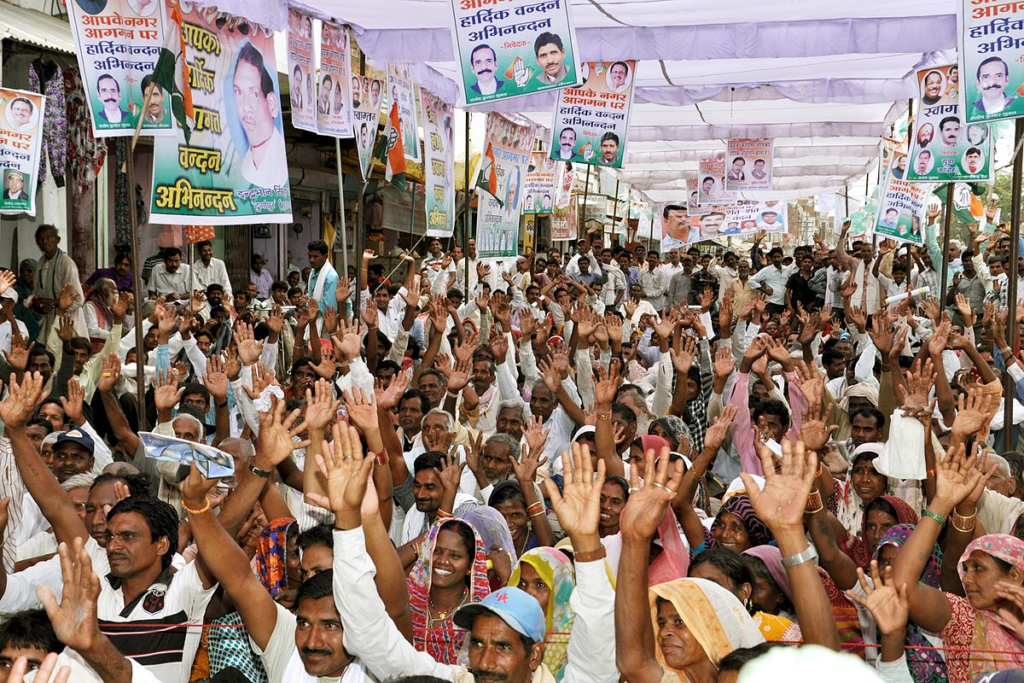QUES . Define political party and point out the main features of the party system in India.
HINTS:

A political party is an organized group of individuals who share similar political ideologies, goals, and objectives, and who work collectively to contest elections, form a government, and influence government policies and decisions. Political parties play a crucial role in representative democracies like India by representing the interests and aspirations of various segments of society and providing voters with choices during elections.
Must read: A National Party – What does it mean in India?
Features of the party system in India
Multi-Party System: India has a multi-party system, meaning that several political parties exist and actively participate in elections. The presence of multiple parties reflects the diversity of India’s population and political landscape.
Dominance of Major Parties: While there are numerous political parties, India is primarily characterized by the dominance of a few major parties at the national and state levels.
Regional Parties: India also has a significant number of regional political parties that primarily operate within specific states or regions. These parties focus on regional issues and have substantial influence in their respective areas.
Coalition Politics: Due to the diversity of India’s political landscape, coalition governments are common. This occurs when no single party secures an absolute majority, leading to alliances and collaborations among parties to form a government.
Must read: Inner Party Democracy in Political Parties: Significance, Challenges and Steps
Ideological Diversity: Indian political parties represent a wide spectrum of ideologies, ranging from left-wing socialist and communist parties to right-wing nationalist and liberal parties. This diversity allows voters to choose parties that align with their beliefs.
Secularism: The Indian Constitution promotes secularism, and most political parties are expected to adhere to this principle by not aligning themselves with any particular religious group or promoting religious discrimination.
Election-Centric: Political parties in India are primarily focused on winning elections and gaining political power. Elections are held at various levels, including national, state, and local, and parties engage in vigorous campaigning to secure votes.
Diverse Support Bases: Parties in India often have diverse support bases, encompassing various caste, religious, linguistic, and regional groups. Building broad-based coalitions is crucial for electoral success.
Role in Governance: Once elected to power, political parties play a vital role in governing and policymaking. Parties formulate policies, enact laws, and oversee the functioning of the government.
Accountability: Political parties are accountable to their voters and are expected to deliver on their election promises. Accountability mechanisms include regular elections, public scrutiny, and media coverage.
Changing Alliances: The political landscape in India is dynamic, with parties forming and dissolving alliances based on electoral strategies and changing political dynamics.
Thus, India’s party system is characterized by its diversity, regionalism, ideological variations, and the dominant role of a few major parties. This diversity reflects the complexity of India’s political landscape and the importance of political parties in the country’s democratic process.
External link: https://egyankosh.ac.in/bitstream/123456789/66626/1/Unit-3.pdf
